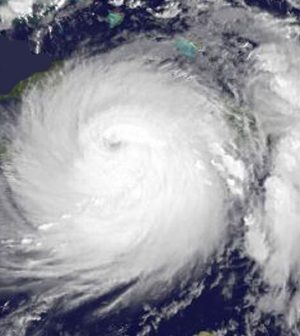- 8 Ways to Increase Dopamine Naturally
- 7 Best Breads for Maintaining Stable Blood Sugar
- Gelatin vs. Collagen: Which is Best for Skin, Nails, and Joints?
- The Long-Term Effects of Daily Turmeric Supplements on Liver Health
- Could Your Grocery Store Meat Be Causing Recurring UTIs?
- Are You Making This Expensive Thermostat Error This Winter?
- Recognizing the Signs of Hypothyroidism
- 10 Strategies to Overcome Insomnia
- Could Artificial Sweeteners Be Aging the Brain Faster?
- Techniques for Soothing Your Nervous System
Too Few U.S. Cities Have Good Hurricane Evacuation Plans

This year’s hurricane season has been quiet so far, but if and when it cranks up many American cities won’t be prepared to execute mass evacuations, a new study finds.
After Hurricane Katrina slammed into New Orleans in 2005, the country bore witness to the pitfalls of not having an effective evacuation plan. Since then only marginal improvements have been made in the 50 largest U.S. cities, researchers report.
For the study, they reviewed city emergency plans from the time frame after Katrina and before the COVID-19 pandemic.
The researchers scored the 50 cities based on a rating system that includes four designations: weak, 0-4 points; moderate, 5-7 points; strong, 8-10 points; and N/A, plans that were not reviewed.
The researchers found that only seven cities had strong plans, including Charlotte, N.C.; Cleveland; Jacksonville; Miami; New Orleans; New York City, and Philadelphia.
Twenty cities had a moderate rating, six cities had a weak rating and 17 had plans that were not available or do not exist. Cities where plans were not found include Atlanta, Chicago, Detroit, Las Vegas, Los Angeles and Minneapolis.
“While it is promising that more cities are developing evacuation plans, overall it remains disheartening that not every city was able to learn the lessons of not being prepared, especially for carless and vulnerable populations, as showcased to the nation during the aftermath of Hurricane Katrina in 2005,” said researcher John Renne. He’s director of the Center for Urban and Environmental Solutions at Florida Atlantic University.
The overall goal of the study was to develop a way to compare plans, and to work toward a standard approach for evaluating evacuation plans for vulnerable populations and people without cars.
“In answer to the question we posed in our paper, ‘What has America learned since Hurricane Katrina?’ — the answer based on our findings is clearly: not enough,” Renne said in a university news release.
“Many cities that have strong plans, including Jacksonville, Miami, New Orleans and New York, are coastal cities that have experienced strong hurricanes in the past,” he said. “This study lends support to the theory that cities do not develop strong evacuation plans, ones that accommodate the needs of all people, unless they have already experienced a major disaster or are under a threat.”
The report was published recently in the International Journal of Disaster Risk Reduction.
More information
For more on planning for a disaster, go to Ready.Gov.
SOURCE: Florida Atlantic University, news release, Aug. 24, 2022
Source: HealthDay
Copyright © 2026 HealthDay. All rights reserved.










